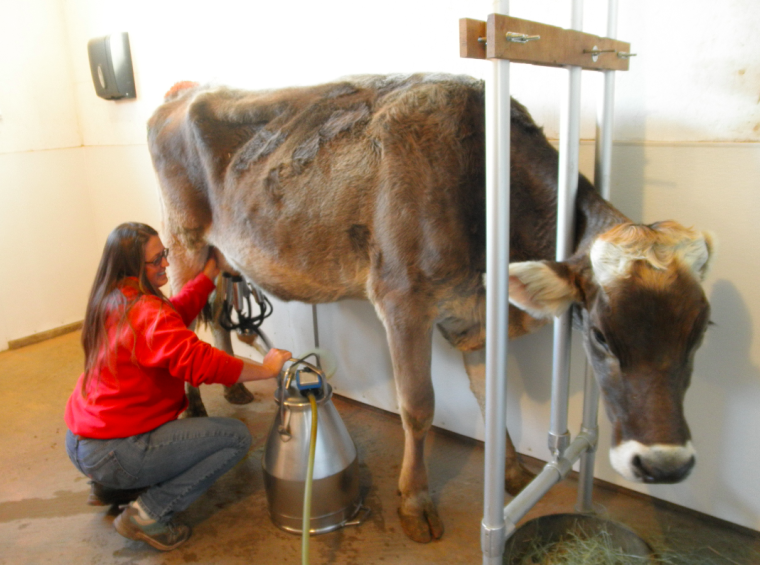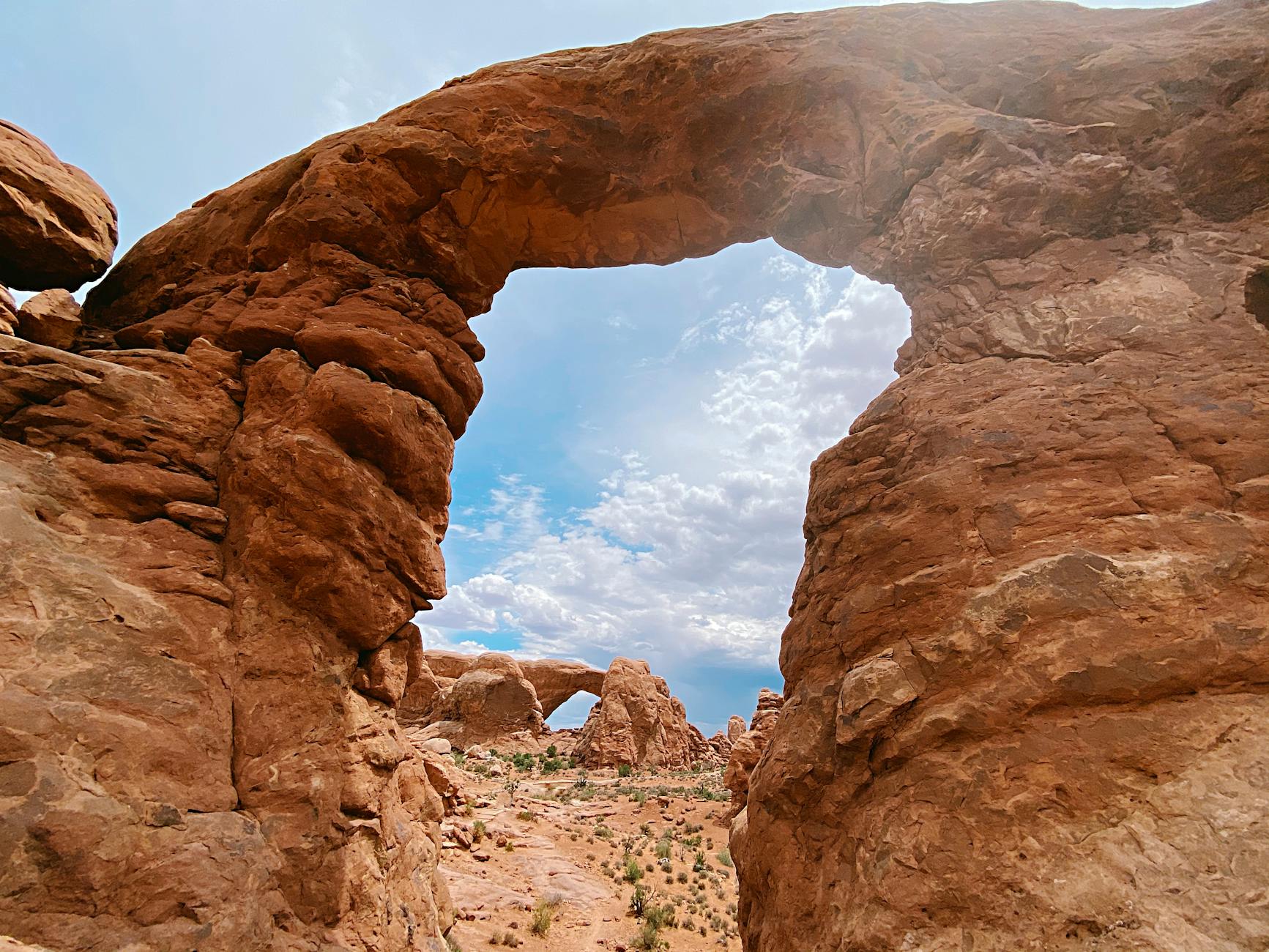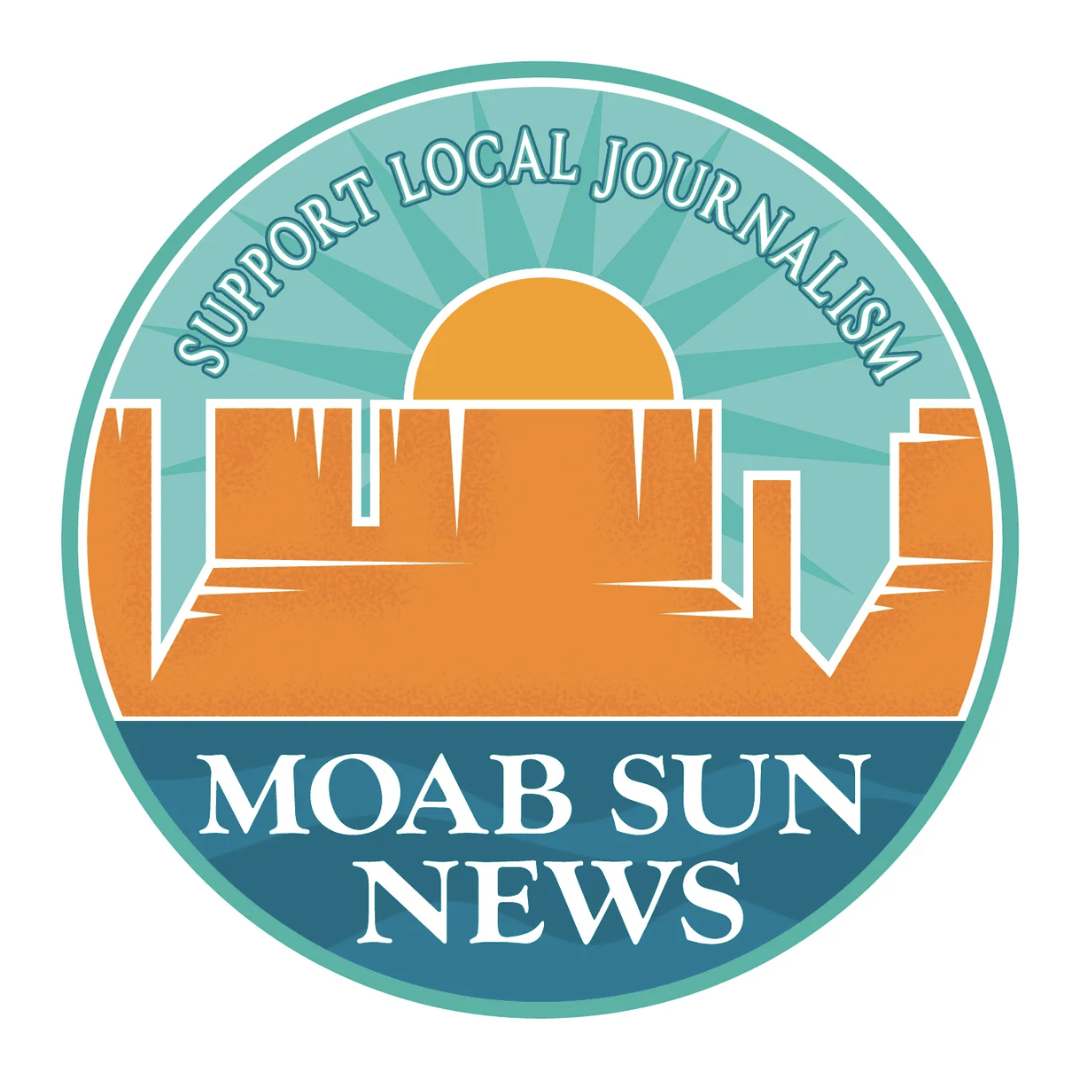Unless a financial backer is found, in the next week Moab will be losing its only local cow dairy. The McClish Family Dairy has encountered a number of challenges and unforeseen expenses in the last few years that have made what is already a difficult, labor-intensive business, untenable, said Molly McClish, the owner and co-founder of the dairy.
“All of our friends who have dairies say you have to give it three years, and this was our third year,” she said. “I love milking cows. I think its great for the community. (But) I don’t have any financial backing.”
Molly McClish moved to Moab from Yellowstone in 1997 to be in a warmer climate. She started her family here and she and her new husband Tye McClish opened a cabinet shop in town. But after a few years the couple decided to diversify into something else.
Tye McClish grew up milking cows on a dairy, so the pair decided to go back to those roots and fill the niche they saw in Grand County.
“We decided that it would be a good thing for the community and we believed in it,” Molly McClish said.
So they began the process of planning out their dairy, then applied for and received a loan from the Farm Service Agency. Working with the county’s inspectors, the McClish family set about constructing the building for their dairy and buying the necessary equipment.
Ray and Ellen Alger, friends of the McClishes with decades of experience in farming, were also instrumental in helping to set up the dairy.
After finishing the building and getting a few cows, the McClishes began selling their milk.
“We talked to Milt’s, Moonflower, and Dave’s (Corner Market),” Molly McClish said. “Those are the first few people we started selling to.”
And the businesses liked what they were getting.
“It is really good milk,” said BC Laprade, the owner of Milt’s Stop and Eat. “The whole idea of what they are doing is nice. I think people really like the idea of getting milk from these people down the street.”
Megan Lyle, the dairy manager at Moonflower Community Cooperative, agreed.
“I think that people have bought the McClish product because it’s a superior product, but I think they also bought it because it brought a sense of community in the way that so many of Moonflower’s vendors do,” she said.
The McClish Family Dairy also developed a committed following for their raw milk sold on-site at the dairy.
After the first year the McClishes and their five cows began to expand their list of buyers. This list grew to include most of Moab’s coffee shops.
“We really like knowing where the milk is coming from,” said Jana Knowles, the owner of Moab Coffee Roasters. “It’s just a great thing to support and to be able to advertise that we are supporting something local.”
Demand for McClish milk kept increasing in the high tourist season, with 210 gallons being sold each week in the spring and fall.
“We used to receive three to four deliveries a week,” Lyle said. “It used to make me laugh. On a Friday night during the season I probably could have stood there with a shopping cart of milk and replaced it as people came in. It wasn’t just the locals, a lot of the second home owners would come in on Friday night and pick up their gallon of McClish for the weekend.”
But the seasonal nature of Moab’s economy was a double-edged sword. Though McClish Family Dairy could not keep up with demand in the spring and fall, they were unable to sell all of their milk in the summer and winter.
“Dairy is a really tough thing. The dairy has paid for itself during the season but that’s it,” Molly McClish said. “It’s been three years of major learning curves.”
Many of those learning curves came from unforeseen expenses, rising costs, and realizing that value-added products, like cheese, are where real profits lie.
“Feed costs going up were huge,” Molly McClish said. “Had we gotten into cheese right away and done just a little bit of milk we would have been fine.”
Another major challenge that the dairy faced came when they unknowingly purchased a cow with a Mastitis infection. Mastitis is caused by staph bacteria, and is linked to the overuse of antibiotics, said Molly McClish, who spent “hours and hours” on the phone with the state dairy specialist when she was treating her cows.
The infection spread to several of the other cows, and though it was eventually treated in all of them, there was point when the McClishes could only sell milk from two of their five cows.
Though the small scale of the McClish Family Dairy made such issues major challenges, simply buying more cows would not have solved the problem.
“My equipment can only handle six cows. It’s all designed for small dairies,” Molly McClish said. “I’d have to have so many more cows to make (the necessary upgrades) worth it if I was going to try to survive on milk.”
An additional problem was that land is so expensive in Moab that buying or leasing any more land would not have been cost effective.
When she and her husband made the decision to split up for personal reasons, they also decided that it was no longer financially feasible for them to run the dairy. But they did not want to see the dairy disappear, so they looked at turning it into a non-profit.
“The folks either weren’t interested, or had other commitments where they had other and weren’t able to help,” Molly McClish said.
And the buyers of the McClish Family Dairy’s milk will be very sorry to see it go.
“There aren’t any alternatives that I know of. I always felt like I had the best product, I didn’t need to go looking,” Lyle said. “I have so many people come to me and tell me, ‘what a loss.’”
Molly McClish is now in talks with a buyer in East Carbon who is interested in purchasing all the cows and shares the who same values the McClish family built their dairy on.
“I’m, number one, trying to find the cows a good home. I love them and I care about them,” Molly McClish said. “It (East Carbon) would be ideal because the cows would be together. They’ll keep it small and they would be close enough that (Moab) might still get milk.”
Though the East Carbon deal looks promising, Molly McClish is still open to a local financial backer coming in to save the dairy.
“If someone came forward to me in the next week I would consider using that money,” she said. “But they need to do it in the next week.”
“I really hope there is a last minute Hail Mary catch of someone coming in and helping out,” Lyle said. “If there is any way that I or Moonflower could facilitate that, I feel like that’s part of our mission.”





